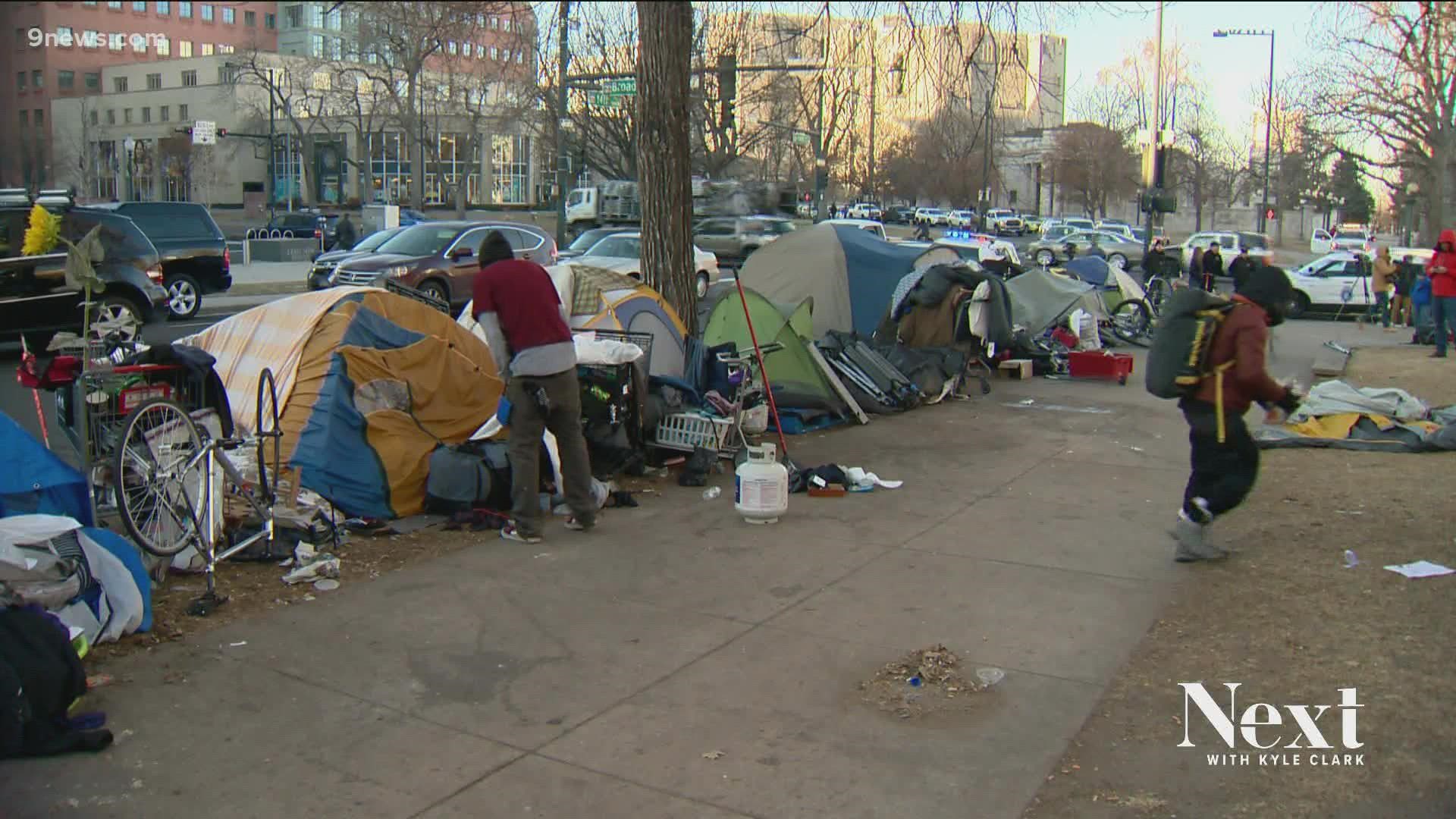DENVER — The city of Denver said it found a program that works to help those experiencing homelessness.
The city is connecting people with affordable housing, coupled with wrap-around services like support with landlord relations, employment assistance and primary and behavioral health care.
Britta Fisher, executive director of the Denver Dept. of Housing Stability, said the program via the Social Impact Bond has had success in connecting with some of the people who are hardest to reach.
"People with multiple arrests, jail, emergency room visits in a year," she said. "It showed even for those a little more far removed, once they received some of these supports and once housed and had support, more than 77% were still successfully housed three years later."
"We are starting to see that with the re-housing collaborative, moving people from motels, hotels, shelters, encampments into housing," added Cathy Alderman with Colorado Coalition for the Homeless.
How do you reconcile that with what's going on at Union Station, including drug use, drug related arrests and people experiencing homelessness? And just last year, Civic Center Park temporarily shut down in the fall for public health and environmental risks.
Fisher said it's math.
"We have 190 of these long term vouchers, emergency intervention for 190 people experiencing homelessness," she said. "We have around 5,000 people experiencing homelessness on any given day."
The new vouchers are available through the U.S. Department of Housing and Urban Development and federal dollars. Fisher said they are lifetime vouchers that can help with housing.
"We are pretty far behind the eight ball," said Alderman about funding investments. "We weren't doing it when we saw increases in homelessness at 20%, 22%, and now at even higher rates. A lot of catching up to do."
Alderman said it will be critical to scale up to match the need.
The city is working on opening up 1,800 supportive housing units in the next decade, housing units with those wrap-around services.
In total, Denver is hoping to add 7,000 affordable housing units in the next five years, including some of those supportive housing units.
But what about now? Over the course of last year, nearly 12,900 people were living unsheltered, according to a report by the Metro Denver Homeless Initiative (MDHI).
"Using motels and hotels, the city is doing that right now," said Alderman. "May need to do that on a longer term basis. Other unused properties, safe outdoor spaces is successful for some people."
Fisher explained the long-term goals.
"I can't promise no one will have a housing crisis resulting in homelessness," said Fisher. "We want to get to a point where we have enough housing resources that match the number of people in housing crisis resulting in homelessness every month. That's what functional zero is."
Fisher did say there have been improvements in helping more veterans find stable housing.
The same was said in the MDHI report, which said: "While homelessness continues to climb for many, the region has seen a 15% decrease in the number of veterans experiencing homelessness, in part due to the regional coordination and the incredible work done by providers in our region, as well as the enhanced resources available."
The city of Denver is also in the middle of a housing surge, where they use additional dollars and resources to move more people in housing.
In a release the city said:
"The city aims to house another 254 households – or 400 total households – in the next 50 days, by May 11. The city and its partners have identified and are working on system improvements that are expected to yield more results later in the surge."
Both Fisher and Alderman said when people were contacted for these housing resources, they were very receptive. Alderman said out of the first 100 people, only one person rejected the offer for help. She did say that it doesn't mean people agreed from the get-go, but it took time to build trust and relationships.
Alderman said same goes for people opting to go to a shelter; it depends on the person if they feel comfortable going, if they could bring all their belongings and the rules at the shelter. COVID has been a factor, as well.

